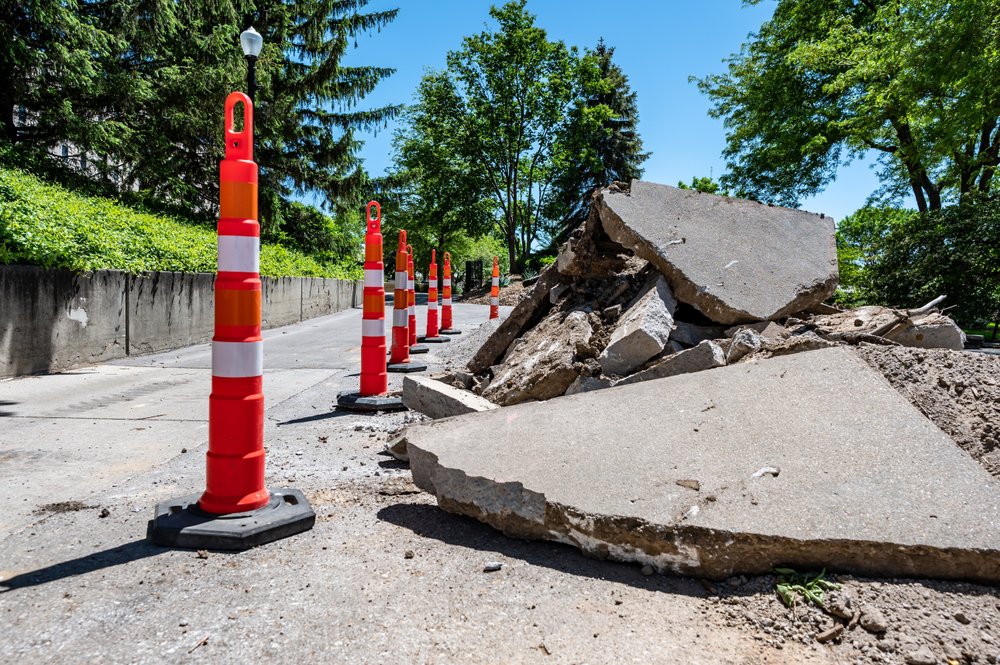A wide variety of hazards are present in buildings owned by the New York City Housing Authority (NYCHA). Many of these conditions can be caused by poor maintenance, structural issues, and failure to make necessary repairs. If you were hurt on a property owned by the NYCHA due to its negligence or carelessness, you may be entitled to file a personal injury lawsuit to recover the damages you suffered. Some of the most common NYCHA accidents caused by negligence can include the following:
1. Trip and Fall Accidents
Trip and fall accidents can happen nearly anywhere on NYCHA property where the walkways, ground, or flooring are not properly maintained. For instance, they can occur in parking lots, common areas, vestibules, stairwells, and walkways. A resident or guest on NYCHA property may trip and fall due to the following dangerous conditions:
- Cracks in the sidewalk
- Poor lighting
- Debris
- Torn carpets
- Uneven surfaces
- Loose floor mats
- Chipped tile
If the NYCHA knew—or should have known—about a hazard that could cause a trip-and-fall accident but failed to make timely repairs or warn about the condition, liability could arise for any resulting injuries.
2. Slip and Fall Accidents
Slip and fall accidents can occur on NYCHA property due to a number of conditions, including ice and snow, rain accumulation, liquid spills, and improper floor mats. A victim of a slip and fall who can show that NYCHA was negligent or careless in dealing with the condition may be eligible to receive compensation in a personal injury lawsuit for their economic and non-economic damages.
3. Elevator Malfunctions
Many NYCHA buildings have had problems with elevator maintenance, resulting in accidents that have caused significant injuries. When elevators are not properly maintained or promptly repaired, they may suddenly stop or drop. Doors may also close improperly or fail to open. An experienced personal injury attorney will know how to investigate the accident and ensure the NYCHA will be held accountable for its negligence.
4. Ceiling Collapses
There can be many reasons ceiling collapses occur on NYCHA property, including water damage, improper construction, building code violations, structural damage, and negligent maintenance. In the event the NYCHA knew there was a hazardous condition that could cause a ceiling to collapse or cave in and failed to make timely repairs, liability could attach for any injuries caused as a result.
5. Fires
Over the last several years, there have been numerous instances of fires in NYCHA properties causing severe injuries or fatalities. Faulty wiring or poorly maintained electrical systems are common causes of fires in these buildings. Notably, the NYCHA can be held responsible for injuries that arise from fire in its buildings if it fails to enforce safety policies, take proper safety precautions, or repair hazardous conditions.
6. Accidents Caused by Inadequate Lighting
Inadequate illumination, broken lights, or missing lighting fixtures on NYCHA property can cause residents and guests to trip on even surfaces, fall in stairwells, or collide with objects. Poor lighting can also lead to assaults and criminal activity that result in serious injuries to a victim. In the event the NYCHA receives a notice that an area on the property was not properly lit and fails to remedy the issue, it can be held liable for any injuries that arise in connection with its negligence.
Contact an Experienced New York Personal Injury Attorney
Filing a claim against the NYCHA can be complex, and it’s crucial to have a skillful personal injury lawyer who can help ensure you receive the maximum monetary recovery available for your injuries. The Dearie Law Firm, P.C., has handled premises liability matters for over three decades, including cases involving the NYCHA, and is committed to securing the best possible results in each unique case. Contact us today for a consultation.

